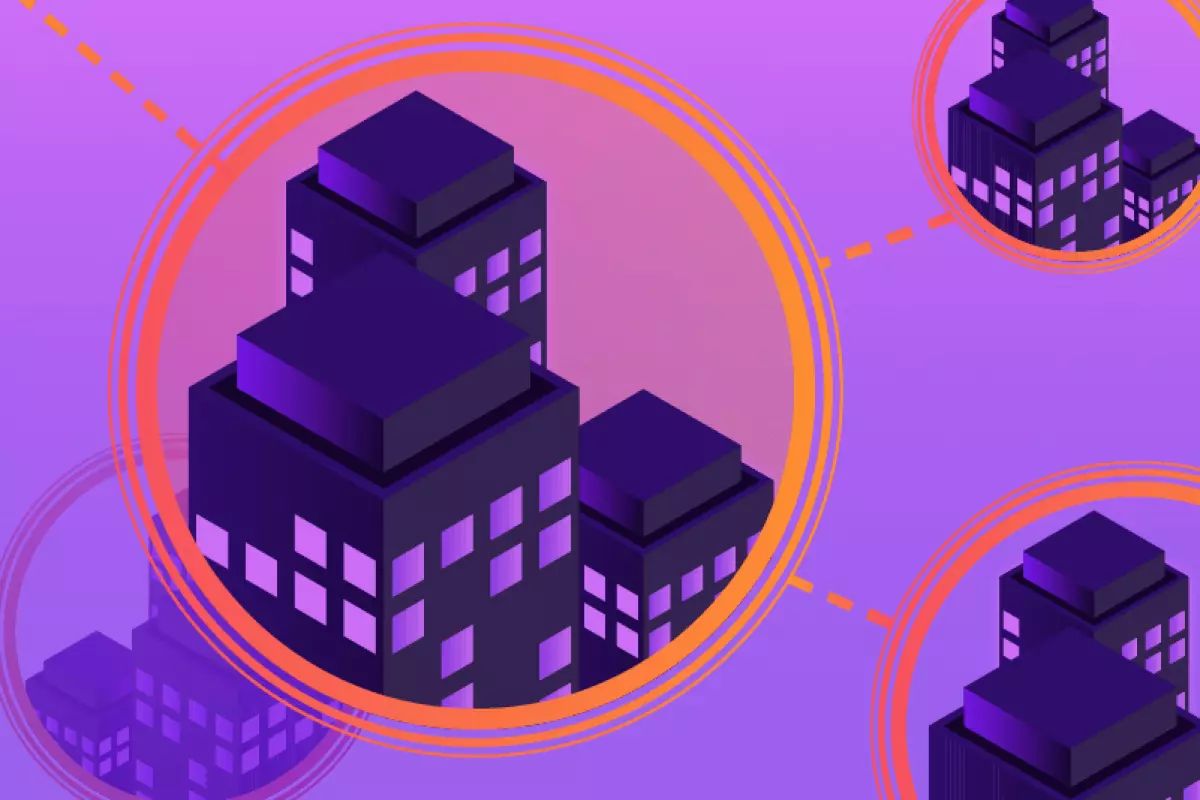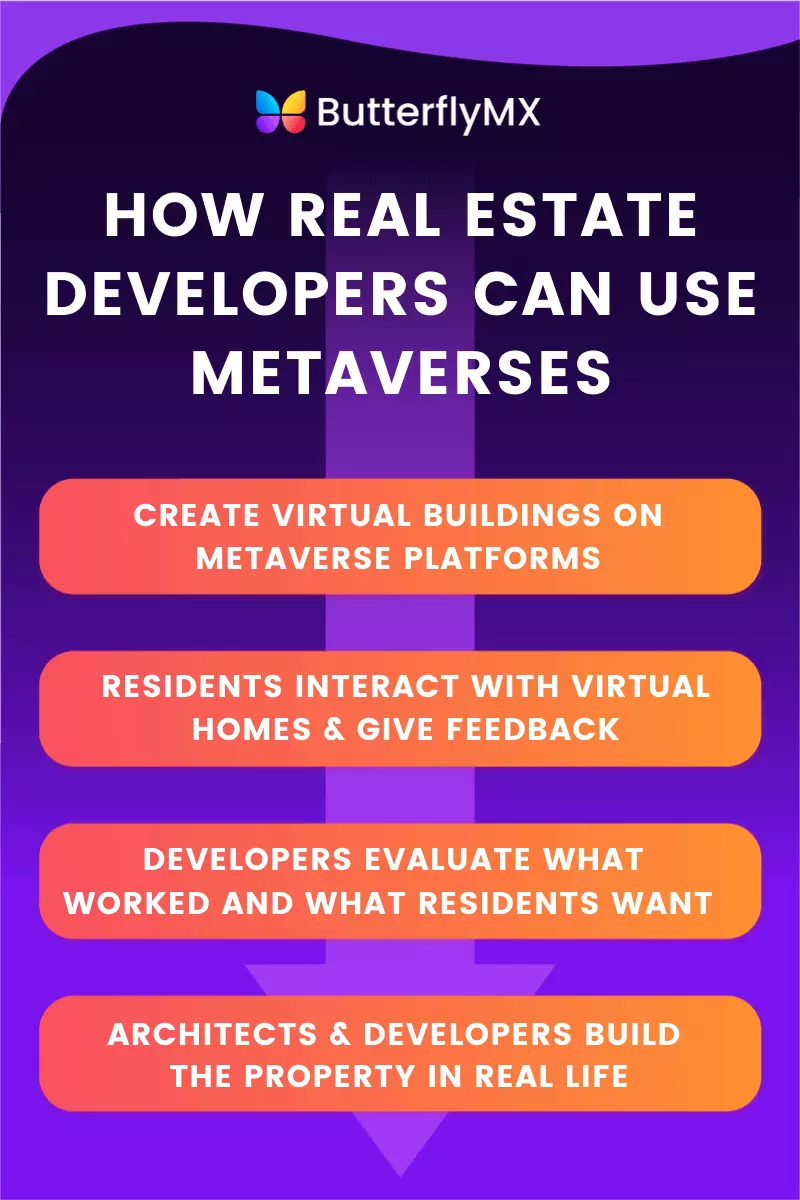
As technology continues to advance, more aspects of our lives are transitioning to the virtual space. From work and school to social gatherings and events, we can now do it all from the comfort of our own homes. But one surprising addition to this list is the emergence of NFT real estate properties.
You're probably familiar with NFTs, or non-fungible tokens, and how they have revolutionized the digital art scene. But did you know that you can now buy blockchain properties that exist only in the digital world? Some of these properties even come with real-life buildings and have a significant impact on the design and construction of physical properties.
In this article, we will explore the virtual real estate phenomenon, its influence on the real estate industry, and how you can prepare for this disruptive trend.
The Rise of Virtual NFT Real Estate
In late 2020, a digital artwork called "Mars House" by Krista Kim was sold for over $500k in a Sotheby's auction, marking the first-ever sale of an NFT digital house. But that's just the tip of the iceberg. Metaverses, as these virtual real estate properties are commonly known, are gaining popularity and attracting significant investments.
According to NonFungible.com, a plot on Decentraland sold for $283,567, and a Somnium Space estate fetched over $500k. In these metaverses, people can enjoy various activities such as visiting casinos, hanging out with friends in hip downtown spots, and exploring shopping malls and museums. Each metaverse caters to different groups of people, just like how preferences for urban cities or suburbs vary in the physical world.

Longing for Connection in a Virtual World
The Covid-19 pandemic isolated people and left them craving connection. As a result, many turned to metaverses as a way to socialize and find solace. Just like gamers sought refuge in video games, real estate enthusiasts and tech junkies found comfort in these digital worlds.
Krista Kim opened the Mars House to the public, offering virtual tours of the property. Through a virtual reality platform called Spartial, visitors could explore the house for a fee and even rent it for virtual private events and weddings. These metaverses provided an escape and a lifeline for people during challenging times.
The Blockchain and Cryptocurrency Connection
The concept of blockchain and cryptocurrency was introduced to the public in 2008. Cryptocurrency, such as Bitcoin and Dogecoin, is a form of digital money that exists on the blockchain, a virtual ledger system. As people increasingly rely on the Internet of Things (IoT) devices, blockchain technology plays a crucial role in securing transactions and protecting online activities.

The adoption of blockchain technology and cryptocurrency mirrors the exponential growth of mobile devices in the past two decades. With its secure encryption and transaction capabilities, blockchain is expected to become mainstream as technology continues to shape our lives.
Virtual Real Estate vs. Physical Real Estate
Virtual real estate shares many similarities with physical real estate, except for the fact that you can't physically inhabit a house in a metaverse. In virtual worlds like Decentraland, people engage in activities similar to those in the physical world. They decorate their homes, visit art galleries and museums, attend events, and socialize with friends through their avatars.
Understanding real estate investments in the physical world can help you navigate the virtual real estate market. Diversifying your investment portfolio is just as important in metaverses as it is in traditional real estate. Although virtual real estate is still in its early stages, it is already gaining recognition as a comparable asset class.

The Surprising Similarities
Metaverses and physical real estate properties share a surprising number of similarities. Just like real estate in major metropolitan areas commands higher prices, metaverses with more content and activities attract more attention and value. Developers pay close attention to the architecture and personality of each virtual city, mirroring the thought and effort put into physical property development.
Scarcity also plays a role in both virtual and physical real estate. Limited parcels of land, similar to acres, are available in metaverses, making popular properties highly sought after. Some of these virtual properties even come with mortgages and can be rented out to tenants, leveraging decentralized finance (DeFi) software for financial transactions.
Merging the Two Worlds
The boundaries between virtual and real-life properties are blurring. California real estate agent Shane Dulgeroff bought and renovated a duplex, then turned it into an NFT by creating a digital replica. The purchaser of the NFT also became the owner of the physical property that inspired the artwork. This fusion of the virtual and physical worlds marks a significant milestone in the evolution of real estate.
"It's less about the significance of the art as it is the significance of us using a platform like this to sell a home. The significance that the art will carry, it's going to be stored in your digital wallet forever as living proof that you purchased the first home ever that was done through any kind of a crypto platform directly. So that's where the real value is." - Shane Dulgeroff
Advantages of Virtual Real Estate
Metaverses offer advantages beyond socialization and community-building. These virtual spaces have a broader reach, allowing advertisers and corporations to target a wider audience. Companies like IKEA Taiwan have already capitalized on this trend, creating links between in-game furniture and their platforms and stores. Virtual spaces provide new marketing opportunities and allow for innovation in reaching demographics that would otherwise be missed.
As the work-from-home revolution becomes more permanent, people may increasingly rely on virtual spaces for socializing. Younger generations, accustomed to online shopping and virtual experiences, are driving the metaverse trend. Although owning property in metaverses can be expensive, the accessibility of these platforms to anyone with internet access ensures a growing audience for marketers.
Influence on the Real World
The Covid-19 pandemic introduced virtual tours as a means of viewing properties remotely. However, the metaverse trend offers even more possibilities. Virtual spaces provide architects and developers with real-time insights into design preferences and amenities desired by tenants. These virtual worlds act as crowdsourced renderings of real estate properties, inspiring innovation in the physical world.
The hype surrounding NFT real estate has the potential to revolutionize the industry. Living in metaverses can combine the high-tech revolution with high-touch personalization. As the trend evolves, the dream of designing and owning personalized homes may become more accessible to the masses.
Embrace the Future
Regardless of your stance on the NFT real estate craze, one thing is clear: technology is driving the future of the real estate industry. Real estate remains a fundamental aspect of human existence, and as technology evolves, so must the industry. Embracing property technology (proptech) will help your properties adapt to the increasingly tech-forward future.

Investing in proptech ensures your property stays ahead of the competition. Cloud-based technology allows for seamless integration of various devices, such as smart locks and video intercoms. The future holds the promise of a unified database where all proptech devices and property management systems can operate together. This integration will bring convenience, efficiency, and new possibilities to property owners and residents.
As we continue to explore the potential of virtual real estate and its impact on the physical world, it's clear that the future of real estate is rooted in technology. By staying informed and embracing innovation, you can position yourself for success in this evolving industry.

















